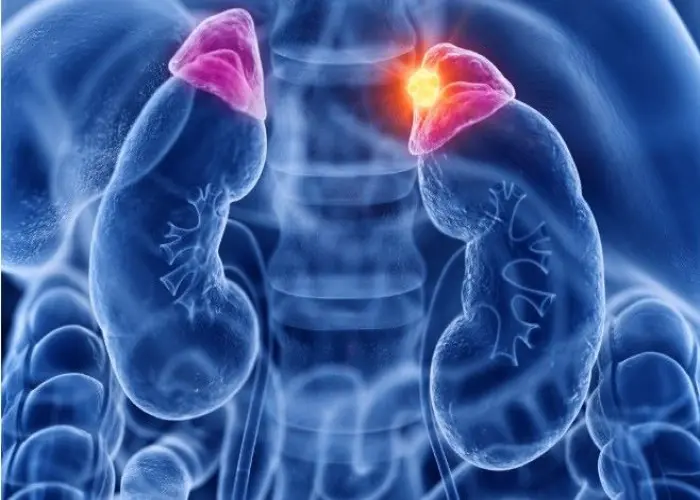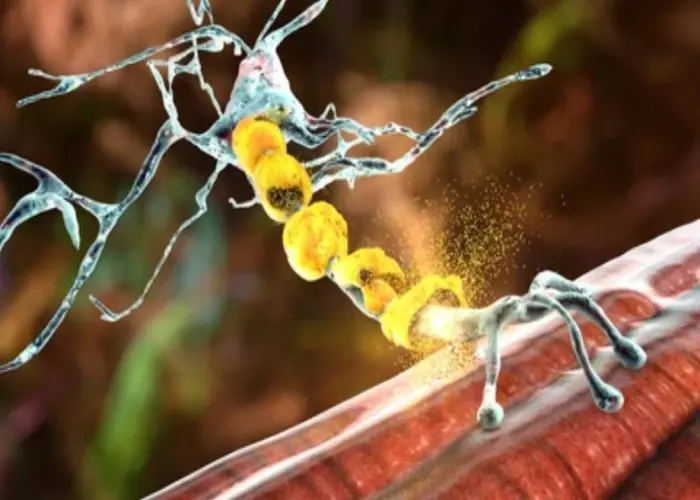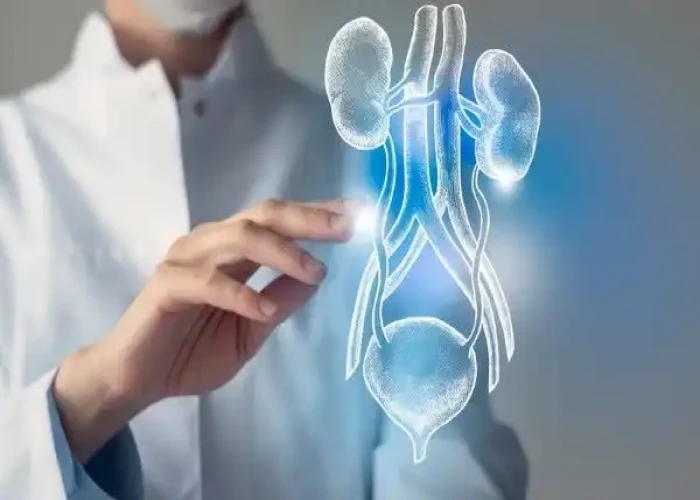 Welcome
Welcome
“May all be happy, may all be healed, may all be at peace and may no one ever suffer."
Cushing syndrome

Cushing syndrome is a condition caused by prolonged exposure to high levels of the hormone cortisol, which is produced by the adrenal glands. This can result from various factors, including taking steroid medications, a tumor in the adrenal gland or pituitary gland, or rarely, from a tumor in another part of the body that produces adrenocorticotropic hormone (ACTH), which stimulates cortisol production.
Symptoms of Cushing syndrome can include weight gain, particularly in the face and upper body, muscle weakness, thinning of the skin, stretch marks, high blood pressure, diabetes, and osteoporosis. Women with Cushing syndrome may also experience irregular menstrual periods and excess hair growth.
Diagnosis of Cushing syndrome involves blood tests to measure cortisol levels, as well as other tests to determine the underlying cause, such as imaging studies to look for tumors. Treatment depends on the cause of the syndrome and may involve surgery to remove tumors, medication to block cortisol production or radiation therapy.
Complications of Cushing syndrome can include an increased risk of infections, osteoporosis, and high blood pressure. It is important for individuals with Cushing syndrome to work closely with their healthcare providers to manage their condition and prevent complications.
Research Papers
Disease Signs and Symptoms
- Rapid weight gain
- Headaches
- High blood pressure (hypertension)
- Depression, anxiety and irritability
- Muscle weakness
- Fatigue (Tiredness)
- Decreased fertility
- Reduced sexual desire
- Excess hair (hirsutism)
- Acne (Pimple)
- Fragile skin
- Skin thinning
- Pink or purple stretch marks on the skin
- Frequent infections
Disease Causes
Cushing syndrome
Too much of the hormone cortisol in your body causes Cushing syndrome. Cortisol, which is produced in the adrenal glands, plays a variety of roles in your body.
For example, cortisol helps regulate your blood pressure, reduces inflammation, and keeps your heart and blood vessels functioning normally. Cortisol helps your body respond to stress. It also regulates the way your body converts proteins, carbohydrates and fats in your diet into energy.
The role of corticosteroid medications (exogenous Cushing syndrome)
Cushing syndrome can develop from taking oral corticosteroid medications, such as prednisone, in high doses over time.
Oral corticosteroids may be necessary to treat inflammatory diseases, such as rheumatoid arthritis, lupus and asthma. They may also be used to prevent your body from rejecting a transplanted organ.
It's also possible to develop Cushing syndrome from injectable corticosteroids — for example, repeated injections for joint pain, bursitis and back pain. Inhaled steroid medicines for asthma and steroid skin creams used for skin disorders such as eczema are generally less likely to cause Cushing syndrome than are oral corticosteroids. But, in some individuals, these medications may cause Cushing syndrome, especially if taken in high doses.
Your body's own overproduction (endogenous Cushing syndrome)
The condition can be due to your body producing either too much cortisol or too much adrenocorticotropic hormone (ACTH), which regulates cortisol production.
In these cases, Cushing syndrome may be related to:
- A pituitary gland tumor (pituitary adenoma). A noncancerous (benign) tumor of the pituitary gland, located at the base of the brain, produces an excess amount of ACTH, which in turn stimulates the adrenal glands to make more cortisol. When this form of the syndrome develops, it's called Cushing disease. It occurs much more often in women and is the most common form of endogenous Cushing syndrome.
- An ACTH-secreting tumor. Rarely, a tumor that develops in an organ that normally doesn't produce ACTH will begin to secrete this hormone in excess. These tumors, which can be noncancerous (benign) or cancerous (malignant), are usually found in the lungs, pancreas, thyroid or thymus gland.
- A primary adrenal gland disease. Disorders of the adrenal glands can cause them to produce too much cortisol. The most common is a noncancerous tumor of the adrenal cortex, called an adrenal adenoma, but only a small fraction of adenomas produce too much cortisol.
- Cancerous tumors of the adrenal cortex are rare, but they can cause Cushing syndrome as well. Occasionally, benign, nodular enlargement of both adrenal glands can result in Cushing syndrome.
- Familial Cushing syndrome. Rarely, people inherit a tendency to develop tumors on one or more of their endocrine glands, affecting cortisol levels and causing Cushing syndrome.
Disease Prevents
Disease Treatments
Treatments for Cushing syndrome are designed to lower the high level of cortisol in your body. The best treatment for you depends on the cause of the syndrome. Options include:
Reducing corticosteroid use
If the cause of Cushing syndrome is long-term use of corticosteroid medications, your doctor may be able to keep your Cushing syndrome signs and symptoms under control by reducing the dosage of the drug over a period of time, while still managing the condition for which you take it. Don't reduce the dose of corticosteroid drugs or stop taking them on your own. Do so only under your doctor's supervision.
Abruptly discontinuing these medications could lead to deficient cortisol levels. Slowly tapering off corticosteroid drugs allows your body to resume normal cortisol production.
Surgery
If the cause of Cushing syndrome is a tumor, your doctor may recommend complete surgical removal. Pituitary tumors are typically removed by a neurosurgeon, who may perform the procedure through your nose. For a tumor in the adrenal glands, lungs or pancreas, the surgeon can remove it through a standard operation or by using minimally invasive surgical techniques, with smaller incisions.
After the operation, you'll need to take cortisol replacement medications to provide your body with the correct amount of cortisol. In most cases, you'll eventually return to normal adrenal hormone production, and your doctor can taper off the replacement drugs. Your endocrinologist will use blood tests to help determine if you need cortisol replacement and when it may be stopped.
However, this process can take up to a year or longer. In some instances, people with Cushing syndrome never return to normal adrenal function. They then need lifelong replacement therapy.
Radiation therapy
If the surgeon can't totally remove a pituitary tumor, he or she will usually prescribe radiation therapy as well as surgery. Additionally, radiation may be used for people who aren't suitable candidates for surgery.
Radiation can be given in small doses over a six-week period, or with a technique called stereotactic radiosurgery. In the latter procedure, a large, one-time dose of radiation is delivered to the tumor, and the radiation exposure to surrounding tissues is minimized.
Medications
Medications can be used to control cortisol production when surgery and radiation don't work. Medications might also be used before surgery in people who have become very sick with Cushing syndrome to improve signs and symptoms and minimize surgical risk. Medical therapy may not completely improve all of the symptoms of excess cortisol.
Medications to control excessive production of cortisol at the adrenal gland include ketoconazole, mitotane (Lysodren) and metyrapone (Metopirone).
Mifepristone (Korlym, Mifeprex) is approved for people with Cushing syndrome who have type 2 diabetes or glucose intolerance. Mifepristone does not decrease cortisol production, but it blocks the effect of cortisol on your tissues.
Side effects from these medications may include fatigue, nausea, vomiting, headaches, muscle aches, high blood pressure, low potassium and swelling. Some have more-serious side effects, such as neurological side effects and liver toxicity.
Newer medications for Cushing syndrome include pasireotide (Signifor), given as a twice-daily injection, and osilodrostat (Isturisa), a pill. Other medications are being developed.
In some cases, the tumor or its treatment will cause the pituitary or adrenal gland to produce not enough of other hormones, and your doctor will recommend hormone replacement medications.
If none of these treatment options is appropriate or effective, your doctor may recommend surgical removal of your adrenal glands (bilateral adrenalectomy). This procedure will cure excess production of cortisol but will require lifelong replacement medications.
Disease Diagnoses
Disease Allopathic Generics
Disease Ayurvedic Generics
Disease Homeopathic Generics
Disease yoga
Cushing syndrome and Learn More about Diseases

Hemorrhoids (Piles)

Hair loss

Charcot-Marie-Tooth disease

Bulimia nervosa

Patent foramen ovale

Diaper rash

Sinus headaches

Urethral stricture
Cushing syndrome, Cushing's disease, Cushing syndrome treatment, কজিং সিন্ড্রোম
To be happy, beautiful, healthy, wealthy, hale and long-lived stay with DM3S.
